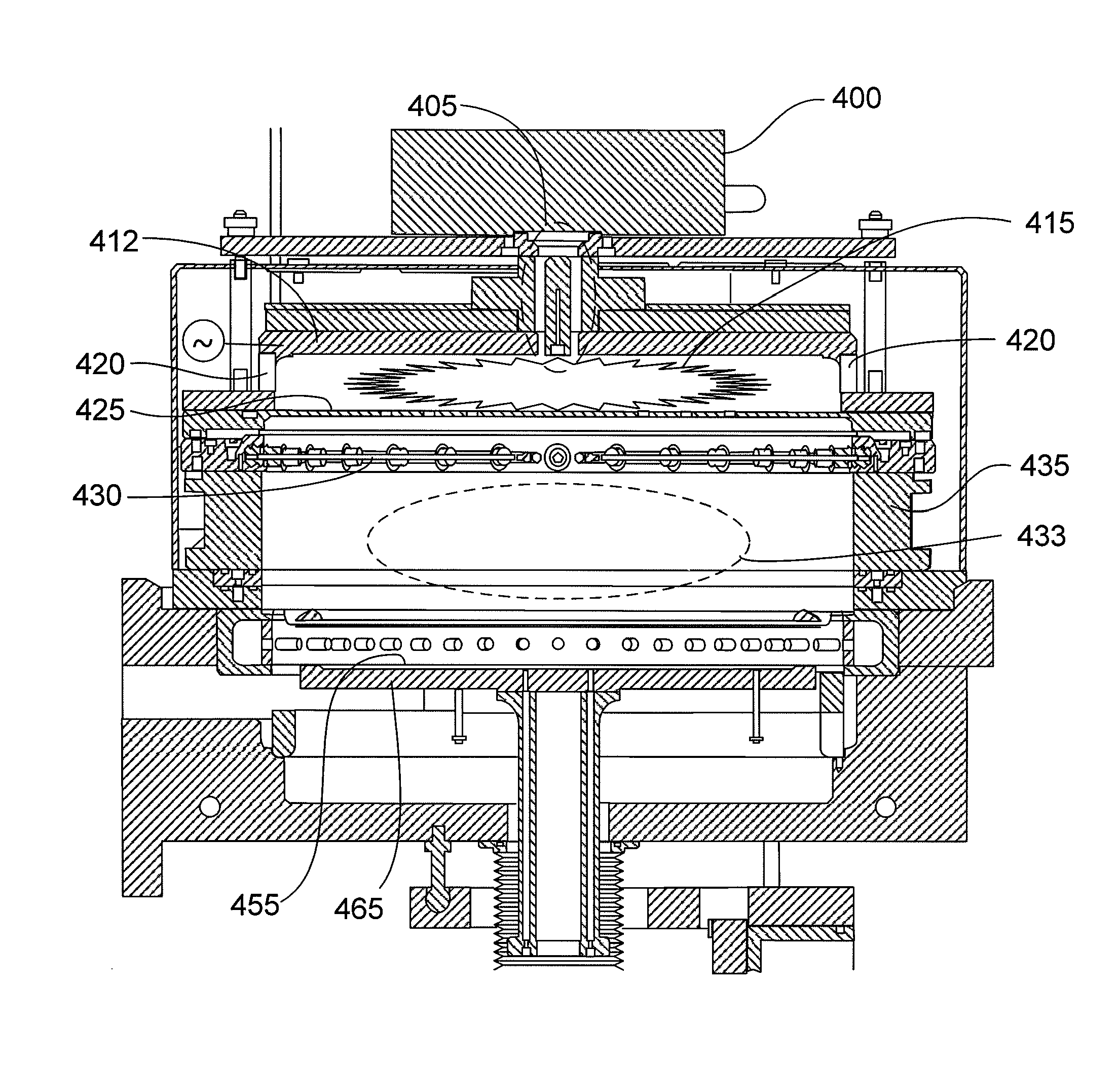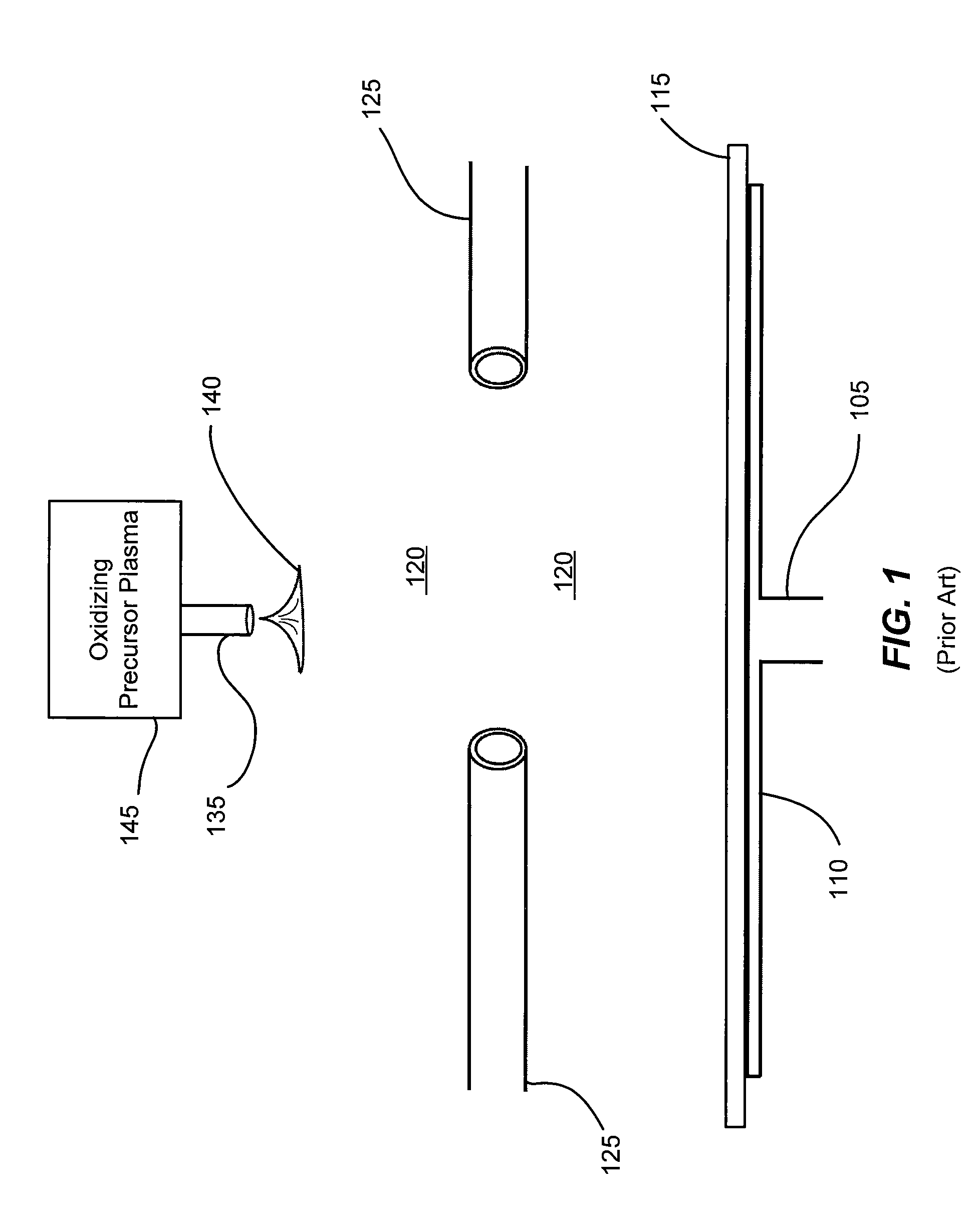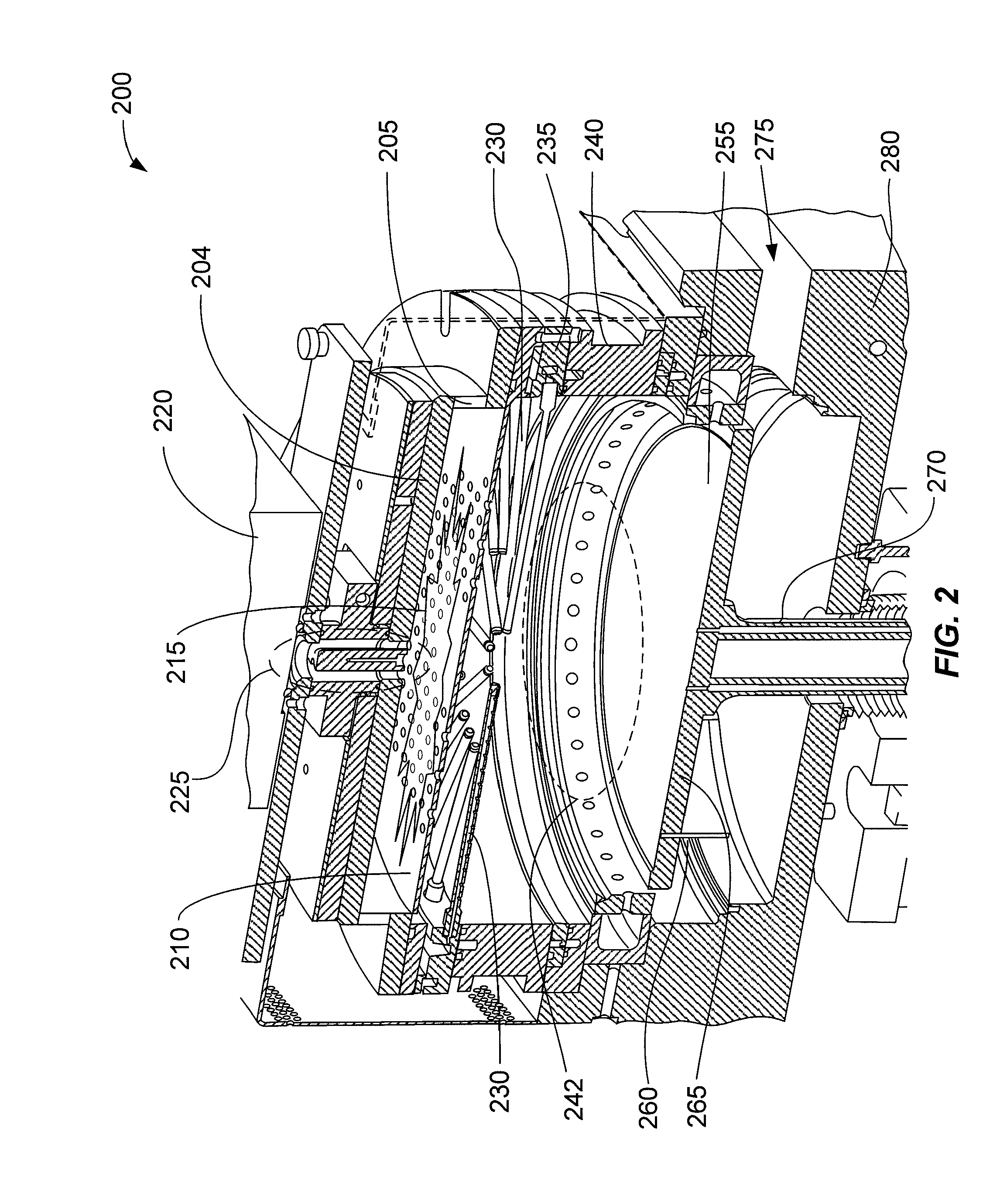Flowable dielectric equipment and processes
a dielectric equipment and flow-through technology, applied in the field of manufacturing technology, can solve the problems of reducing the yield of reflow products, reducing the efficiency of reflow processes, so as to reduce the hydrogen, carbon and fluorine content of films, reduce the effect of undesirable components and reducing the contraction
- Summary
- Abstract
- Description
- Claims
- Application Information
AI Technical Summary
Benefits of technology
Problems solved by technology
Method used
Image
Examples
Embodiment Construction
[0037]Disclosed embodiments include substrate processing systems that have a processing chamber and a substrate support assembly at least partially disposed within the chamber. At least two gases (or two combinations of gases) are delivered to the substrate processing chamber by different paths. A process gas can be delivered into the processing chamber, excited in a plasma, and pass through a showerhead into a second plasma region where it interacts with a silicon-containing gas and forms a film on the surface of a substrate. A plasma can be ignited in either the first plasma region or the second plasma region.
[0038]FIG. 2 is a perspective view of a process chamber with partitioned plasma generation regions which maintain a separation between multiple gas precursors. A process gas containing oxygen, hydrogen and / or nitrogen (e.g. oxygen (O2), ozone (O3), N2O, NO, NO2, NH3, NxHy including N2H4, silane, disilane, TSA, DSA, . . . ) may be introduced through the gas inlet assembly 225 ...
PUM
| Property | Measurement | Unit |
|---|---|---|
| diameter | aaaaa | aaaaa |
| diameter | aaaaa | aaaaa |
| diameter | aaaaa | aaaaa |
Abstract
Description
Claims
Application Information
 Login to View More
Login to View More - R&D
- Intellectual Property
- Life Sciences
- Materials
- Tech Scout
- Unparalleled Data Quality
- Higher Quality Content
- 60% Fewer Hallucinations
Browse by: Latest US Patents, China's latest patents, Technical Efficacy Thesaurus, Application Domain, Technology Topic, Popular Technical Reports.
© 2025 PatSnap. All rights reserved.Legal|Privacy policy|Modern Slavery Act Transparency Statement|Sitemap|About US| Contact US: help@patsnap.com



